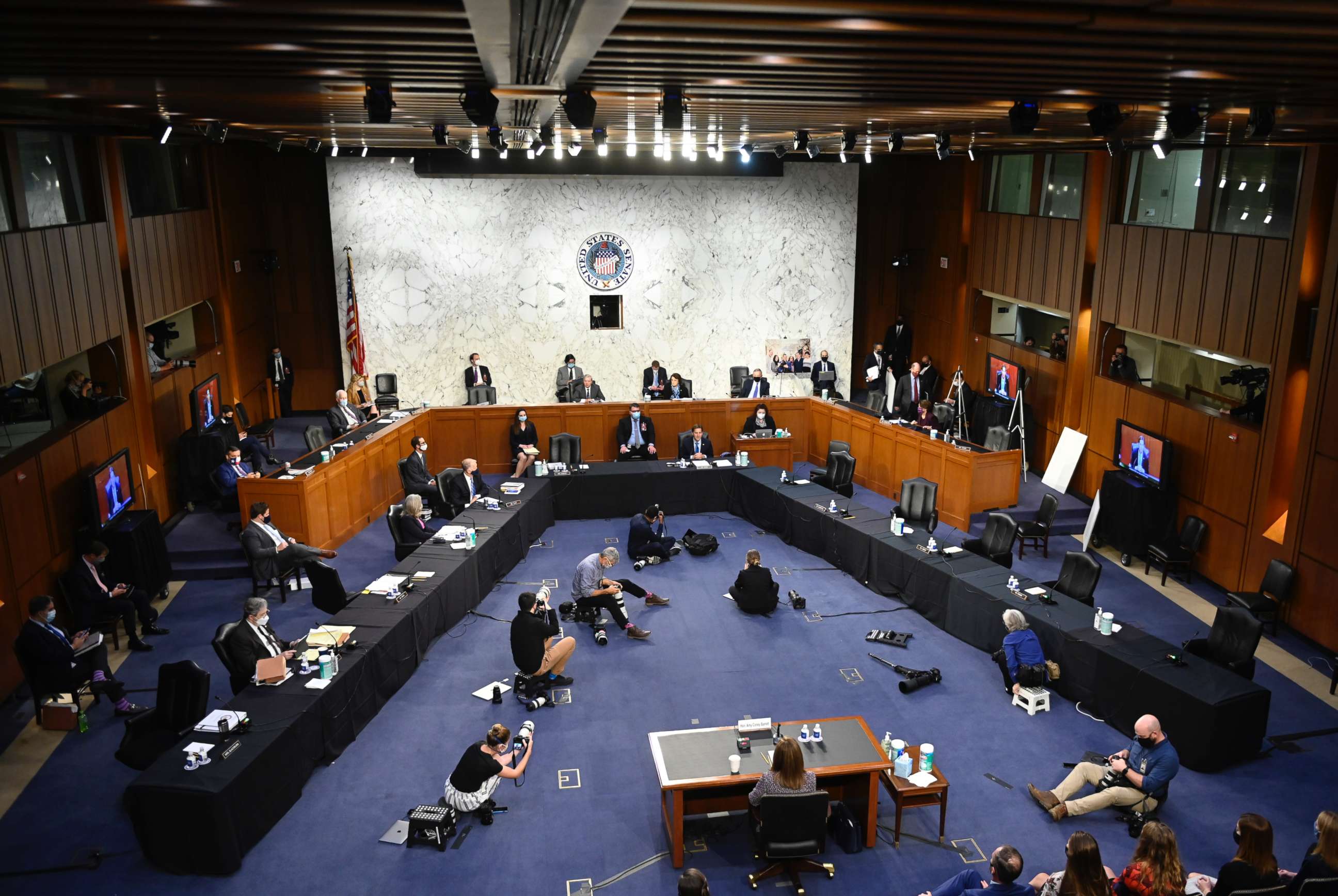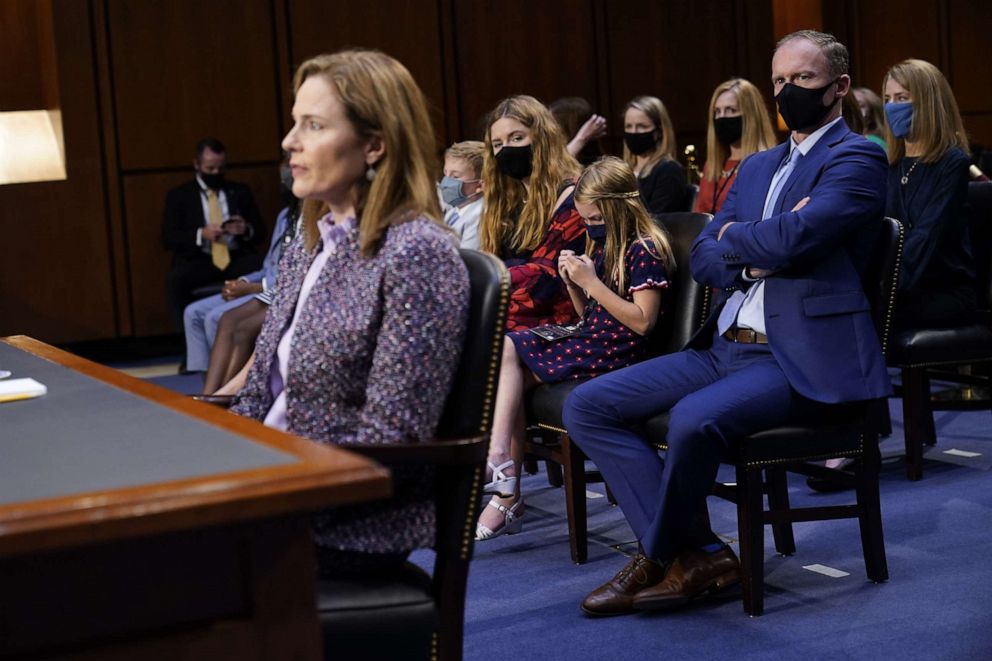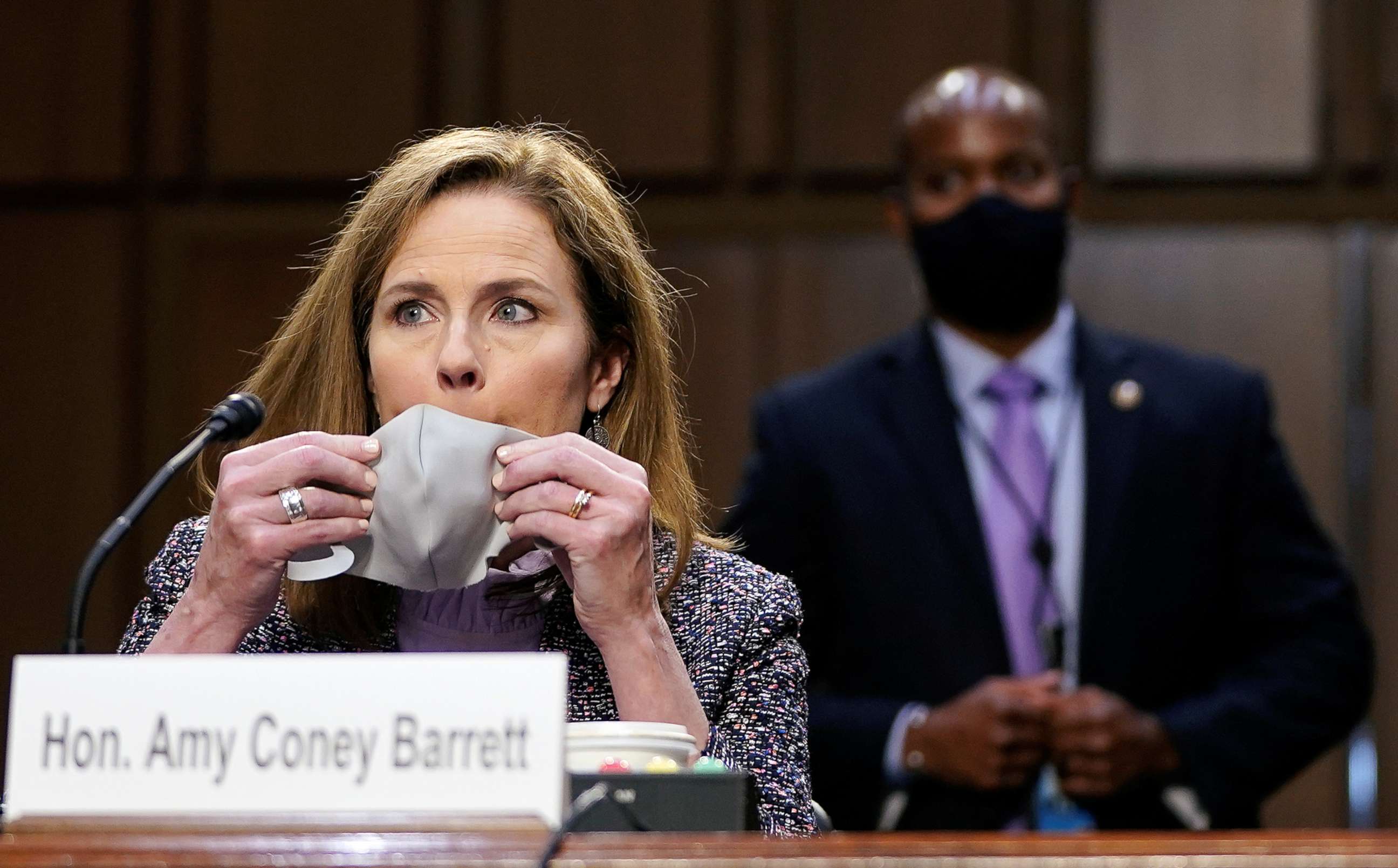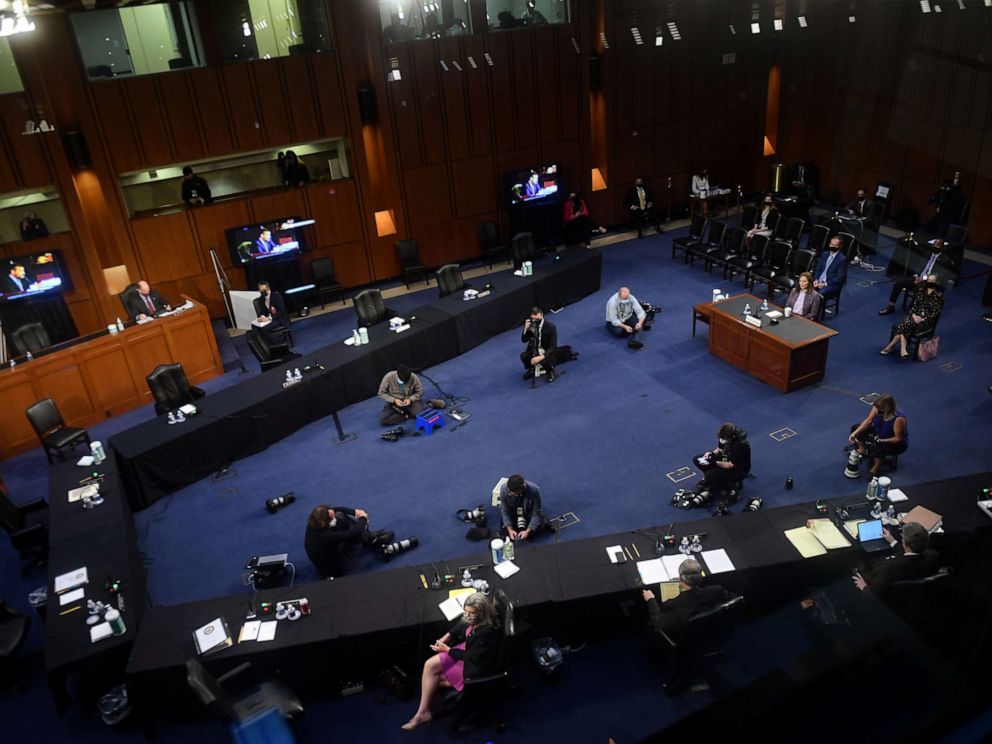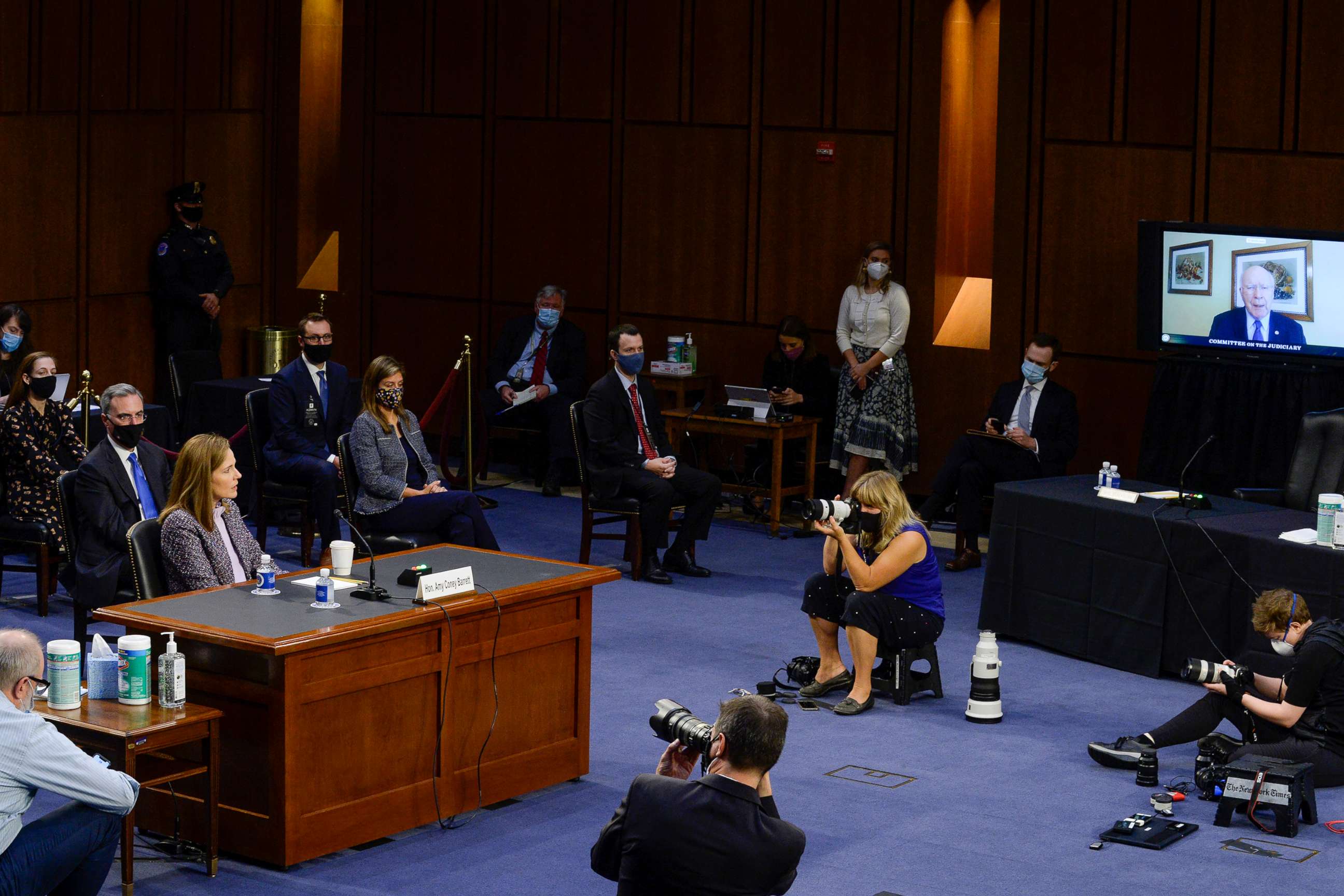Coons warns of new wave of 'conservative judicial activism' with Barrett on court
As she has done many times during these hearings, Barrett drew a distinction between the late Justice Scalia and a "Justice Barrett," despite their sharing an originalist approach to the Constitution and Scalia having been her mentor.
"I hope that you aren't suggesting that I don't have my own mind or that I couldn't think independently or that I would just decide like -- 'let me see what Justice Scalia said about this in the past' -- because I assure you I have my own mind," Barrett pointedly told Sen. Chris Coons, D-Del. "I share his philosophy, but I have never said that I would always reach the same outcome as he did."
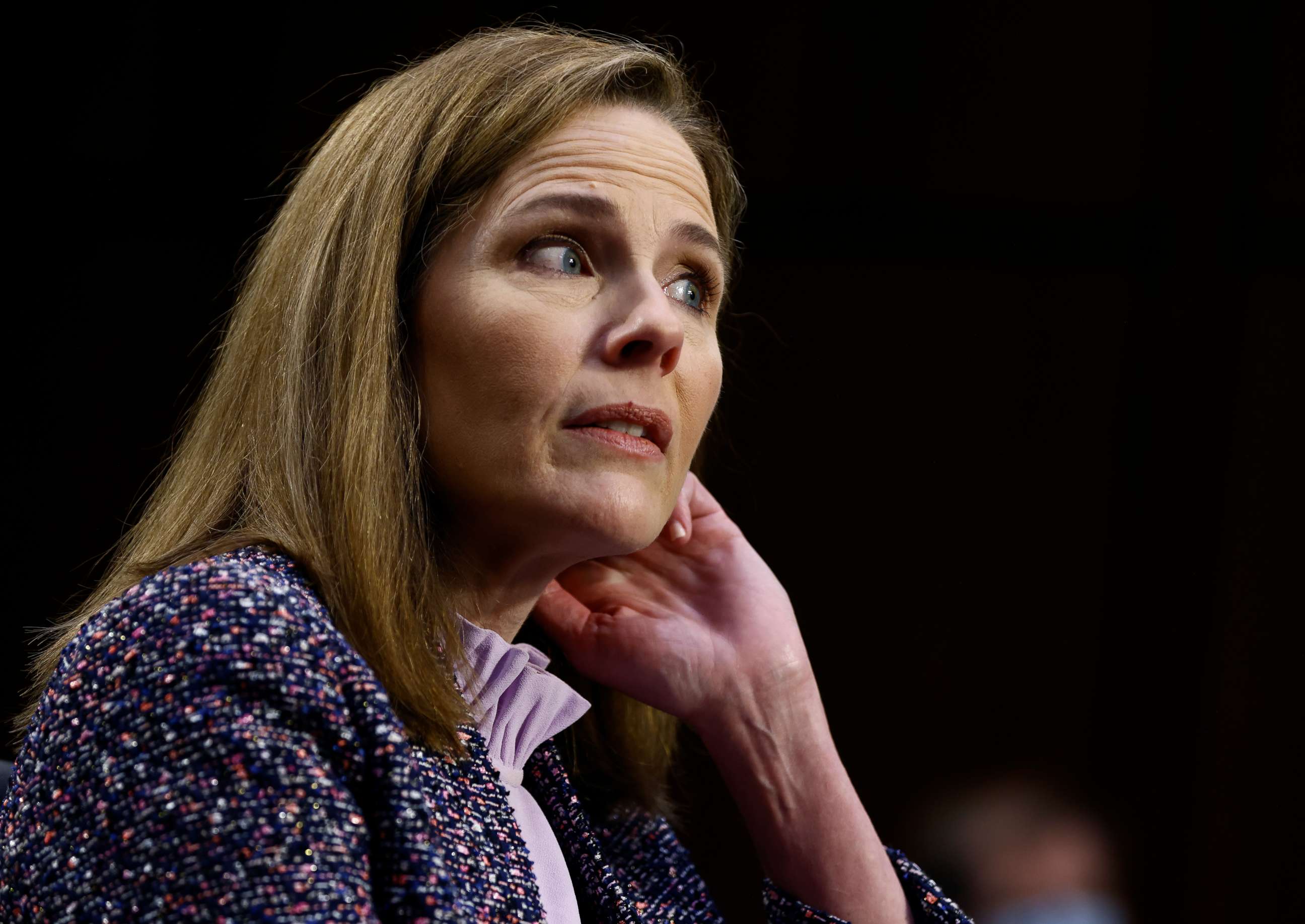
Still, Coons dug into the major conservative shift Barrett would bring to the court and used visual aids to display some of her past writings he argued indicate she would help a new majority overturn landmark cases.
Referring to Scalia's strongly-put contrarian views, Coons said his "memorable dissents may make for great academic reading, but I think most Americans don't expect them to become the law of the land."
"My core concern here, your honor, is that your confirmation may launch a new chapter of conservative judicial activism unlike anything we've seen in decades. And the point of the chart was to just show we've mostly been talking about the Affordable Care Act and privacy-related cases, but if that's true, it could touch virtually every aspect of modern American life," Coons continued.
"I pray that I'm wrong. I hope that I am. But in my reading of your work, nothing has alleviated my grave concerns that rather than building on Justice Ginsburg's legacy of privacy, I'm concerned you will take the court in a very different direction," he said. "So, with all due respect, I will be voting against your confirmation."
